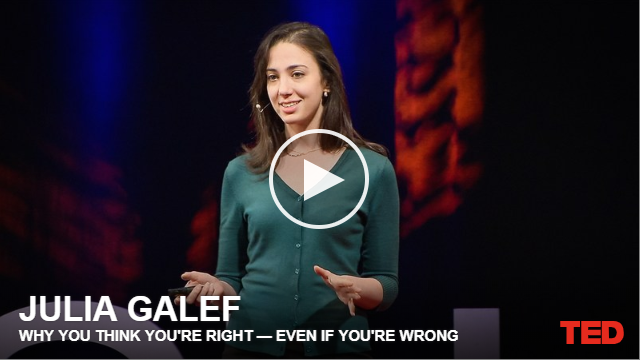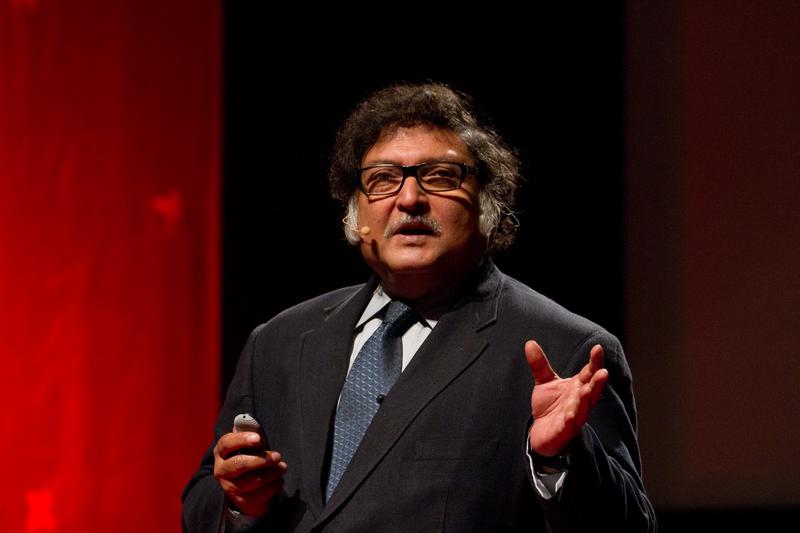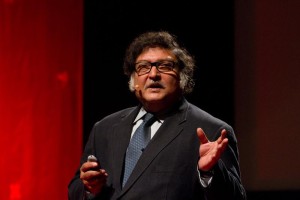
I’m never wrong, except when I’m disagreeing with my wife. Okay, fine, I admit that I’m often wrong and I’m not always the quickest to acknowledge when I’m wrong. Recently I watched Julia Galef’s TEDx talk on why we think we’re right — even when we’re wrong. It turns out when I struggle to see or admit that I am wrong, I am often encountering what social scientists call “motivated reasoning.” Galef explains that motivated reasoning refers to how our  “unconscious motivations, our desires, and fears, shape the way we interpret information.” In other words, we are rarely fully disinterested and impartial in the face of new data. Galef explains that “some information, some ideas, feel like our allies. We want them to win. We want to defend them. And other information or ideas are the enemies, and we want to shoot them down.”
Often how we respond to new information can be traced back to our mindsets and how open we are too different perspectives. Galef describes these mindsets using two metaphors:
So I’d like you to imagine for a moment that you’re a soldier in the heat of battle. Maybe you’re a Roman foot soldier or a medieval archer or maybe you’re a Zulu warrior. Regardless of your time and place, there are some things that are constant. Your adrenaline is elevated, and your actions are stemming from these deeply ingrained reflexes, reflexes rooted in a need to protect yourself and your side and to defeat the enemy.
So now, I’d like you to imagine playing a very different role, that of the scout. The scout’s job is not to attack or defend. The scout’s job is to understand. The scout is the one going out, mapping the terrain, identifying potential obstacles. And the scout may hope to learn that, say, there’s a bridge in a convenient location across a river. But above all, the scout wants to know what’s really there, as accurately as possible.
In order to cultivate the scout mentality, we need to change the way we feel. While that might not be the most intuitive advice, our gut reactions and even our ability to reason are conditioned with the more immediate emotional reactions we have. Galef explains that in order to learn to be like scouts, “we need to learn how to feel proud instead of ashamed when we notice we might have been wrong about something. We need to learn how to feel intrigued instead of defensive when we encounter some information that contradicts our beliefs.” To me, that sounds like we also need a healthy dose of humility, and maybe even the humor to laugh at our mistakes, which will let us truly become lifelong learners.
Below is the whole TEDx talk:


